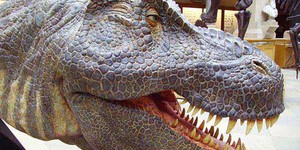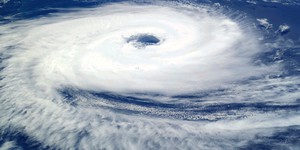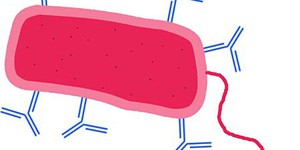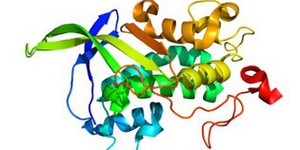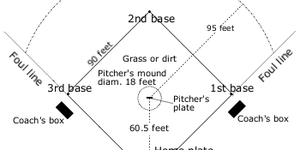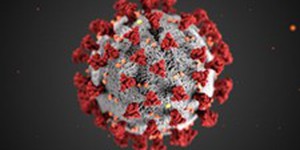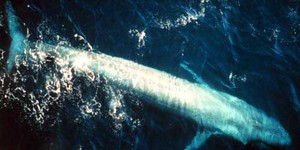Tenth Grade, Big Data Science Projects (16 results)
"Big data" is exactly what it sounds like, a really large amount of data. Science has always been at the forefront of gathering, visualizing, and trying to make sense of massive data sets. For example, think of the more than 661,000 (and counting) asteroids that have been discovered in our solar system. Or ponder that 1.2 million species have been caught, identified, classified, and catalogued on Earth. And then there are the approximately 3 billion base pairs sequenced from the human genome. Even before there was a term for it, scientists have been amassing and analyzing big data.
|
Select a resource
Sort by
|
In a survey conducted from 2007 to 2010, the U.S. Centers for Disease Control and Prevention reported that about 49% of people in the United States had taken at least one prescription drug during the past month, and about 22% of people had taken three or more prescription drugs. People are prescribed drugs all the time, but prescriptions can be dangerous because people can have different responses to drugs. These responses largely have to do with genetic mutations. Why are some genetic…
Read more
Featured
Have you heard that garlic powder is supposed to inhibit the growth of bacteria? Which do you think would make a better disinfectant: a solution of garlic powder or a solution of bleach? This project shows you a straightforward way to compare the effectiveness of different disinfectants (or other antimicrobial agents), by measuring zones of inhibition on a culture plate.
Read more
Believe it or not, scientists were recently able to recover tissue from a 68-million-year-old Tyrannosaurus rex fossil! Not only were they able to purify non-mineralized tissue, but they also succeeded in obtaining partial sequence information for protein molecules in the T. rex tissue. In this genomics science fair project, you will use the T. rex's protein sequence to search sequence databases for the its closest living relatives.
Read more
New
Artificial intelligence (AI) programs can now generate photorealistic pictures of people who do not exist in the real world. How can you tell if a picture is of a real person or a fake, AI-generated person? What features of the picture do people use to decide whether the face is real or AI-generated? In this project, you will explore these questions as you ask volunteers to look at both real and AI-generated pictures of human faces.
Read more
We've all heard that hurricanes draw their immense power from warm ocean waters. Of course, many factors contribute to the formation and growth of a hurricane, but can we expect to find that the warmer the water, the stronger the hurricane will be? This project shows you how to use online data archives to investigate this question.
Read more
Remember going to the doctor and getting vaccine shots? It is no fun getting poked with a needle, but fortunately, a vaccine helps our immune system to develop protection against a serious illness for years to come. But what about the flu vaccine? How come there is a new one every year? This science fair project will show you why.
Read more
Social media is all the buzz on the internet. What can we do with all the information generated by millions of people posting, tweeting, taking pictures, and chatting? How do companies convert it into profit? While you do not have the tools to analyze data from millions of social media posts by yourself, you will be able to analyze a scaled-down version. Follow the instructions in this project to try your hand at extracting data from a couple of social media sites and use it to create…
Read more
New
If someone asks you to draw a picture of a doctor, lawyer, or engineer, what first pops into your mind? The race and gender of the person you imagine might be shaped by your personal life experiences, such as whether you have family members in those professions, or what representations of them you have seen on TV or online. What do you think will happen if you ask an artificial intelligence (AI) program to generate the picture instead? Will pictures generated by AI reflect the true real-world…
Read more
Scientists recently found that some small drugs can stop infection by the deadly Ebola virus in
its tracks. Lab researchers found that these drugs bind to a protein that the Ebola virus uses to enter
our cells, and this is how infection is prevented. However, this also means that the bound protein no
longer functions in our cells. How might these drugs accidentally disrupt important biological processes
in our bodies? What other proteins might these drugs bind to? In this science project,…
Read more
Have you ever wondered how playing in a certain stadium affects how well the athletes perform? Major League Baseball (MLB) is played in ballparks that have their own individual quirks when it comes to the exact layout of the field. How an individual ballpark affects player performance, which is known as ballpark effects, is heavily investigated in the field of baseball. To name just a few parks and their different traits, Fenway Park (the long-time home ballpark for the Boston Red Sox in…
Read more
Over time, viruses evolve. Their evolution is influenced by both neutral drift, the natural mutation rate of the virus, and selective pressure from the hosts' immune systems. Scientists study a virus's genomic evolution—the changes at the nucleotide and amino acid level—to better understand how the virus is spreading and the clinical implications. You can use public databases and tools to do the same type of tracking and analysis of COVID-19 that scientists around the world do. …
Read more
The first land animals took their tentative steps out of the ocean and onto solid ground around 365 million years ago. Over millions of years, these early ancestors developed into tetrapods, including amphibians, reptiles, dinosaurs, birds, and mammals. Then, around 50 million years ago, the reverse process occurred: the mammalian ancestor of today's whales returned to the ocean. In this genomics science fair project, you will use mitochondrial protein sequencing to trace the evolution of…
Read more
Did you ever wonder about your ancient ancestors? Who they were? Where they came from? In this science project, you will investigate the secrets of your distant past as revealed by your DNA. In order to obtain a sample for DNA analysis, you will scrape a soft swab inside your mouth to collect cheek cells. The cheek cell sample will be sent to a lab for processing, and the results of the analysis will be sent to you. Based on the genetic markers in your DNA, the ancient clan that your…
Read more
|
Explore Our Science Videos
Self-Driving Cars Science Project: Automatic Braking
Why Won't it Mix? Discover the Brazil Nut Effect
Build A Solar Updraft Tower!




